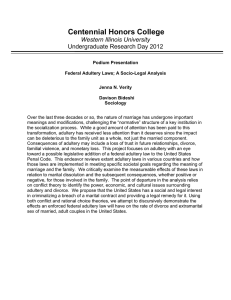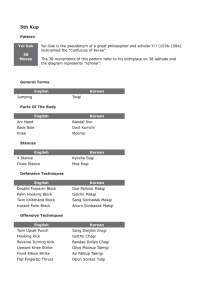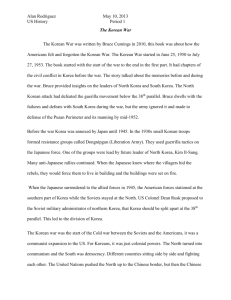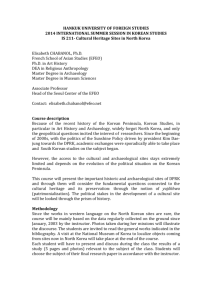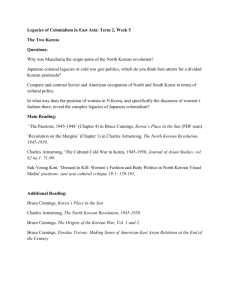Caroline Burke Sociology 2010 Current Event
advertisement
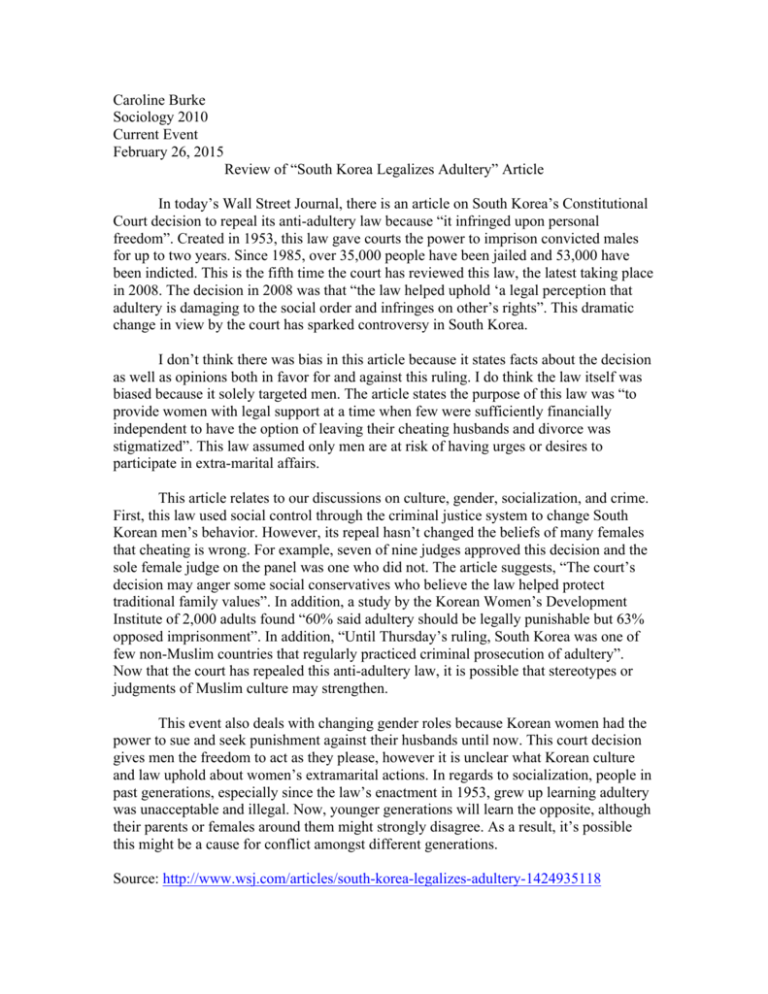
Caroline Burke Sociology 2010 Current Event February 26, 2015 Review of “South Korea Legalizes Adultery” Article In today’s Wall Street Journal, there is an article on South Korea’s Constitutional Court decision to repeal its anti-adultery law because “it infringed upon personal freedom”. Created in 1953, this law gave courts the power to imprison convicted males for up to two years. Since 1985, over 35,000 people have been jailed and 53,000 have been indicted. This is the fifth time the court has reviewed this law, the latest taking place in 2008. The decision in 2008 was that “the law helped uphold ‘a legal perception that adultery is damaging to the social order and infringes on other’s rights”. This dramatic change in view by the court has sparked controversy in South Korea. I don’t think there was bias in this article because it states facts about the decision as well as opinions both in favor for and against this ruling. I do think the law itself was biased because it solely targeted men. The article states the purpose of this law was “to provide women with legal support at a time when few were sufficiently financially independent to have the option of leaving their cheating husbands and divorce was stigmatized”. This law assumed only men are at risk of having urges or desires to participate in extra-marital affairs. This article relates to our discussions on culture, gender, socialization, and crime. First, this law used social control through the criminal justice system to change South Korean men’s behavior. However, its repeal hasn’t changed the beliefs of many females that cheating is wrong. For example, seven of nine judges approved this decision and the sole female judge on the panel was one who did not. The article suggests, “The court’s decision may anger some social conservatives who believe the law helped protect traditional family values”. In addition, a study by the Korean Women’s Development Institute of 2,000 adults found “60% said adultery should be legally punishable but 63% opposed imprisonment”. In addition, “Until Thursday’s ruling, South Korea was one of few non-Muslim countries that regularly practiced criminal prosecution of adultery”. Now that the court has repealed this anti-adultery law, it is possible that stereotypes or judgments of Muslim culture may strengthen. This event also deals with changing gender roles because Korean women had the power to sue and seek punishment against their husbands until now. This court decision gives men the freedom to act as they please, however it is unclear what Korean culture and law uphold about women’s extramarital actions. In regards to socialization, people in past generations, especially since the law’s enactment in 1953, grew up learning adultery was unacceptable and illegal. Now, younger generations will learn the opposite, although their parents or females around them might strongly disagree. As a result, it’s possible this might be a cause for conflict amongst different generations. Source: http://www.wsj.com/articles/south-korea-legalizes-adultery-1424935118


